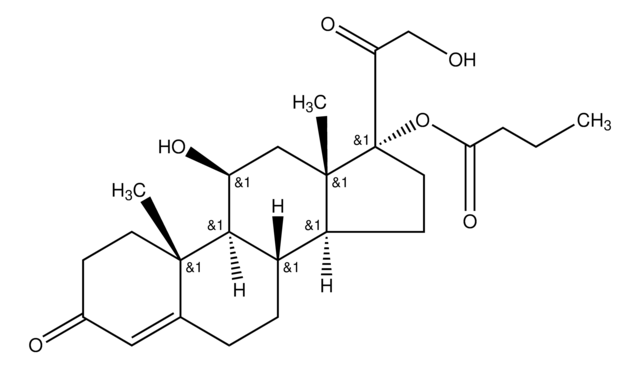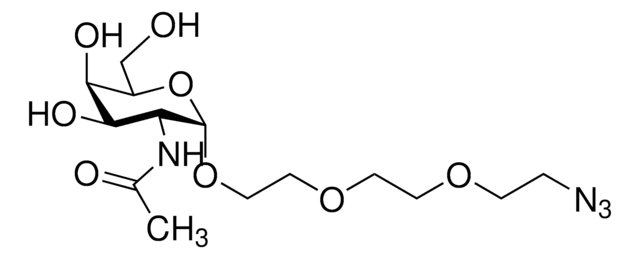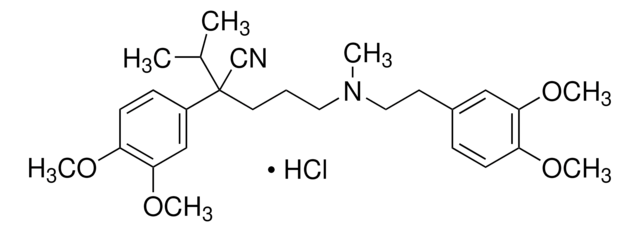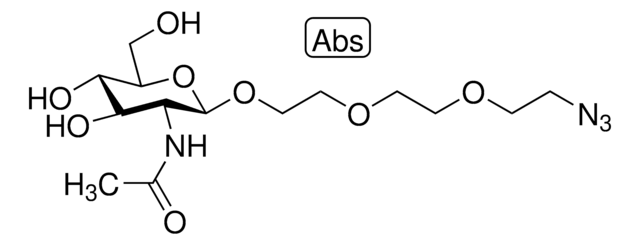SML1043
KC7F2
≥98% (HPLC)
Synonym(s):
N,N′-(Dithiodi-2,1-ethanediyl)bis[2,5-dichloro-benzenesulfonamide
About This Item
Recommended Products
Quality Level
Assay
≥98% (HPLC)
form
powder
color
white to beige
solubility
DMSO: 20 mg/mL, clear
shipped in
wet ice
storage temp.
−20°C
SMILES string
ClC1=CC=C(Cl)C=C1S(NCCSSCCNS(C2=C(Cl)C=CC(Cl)=C2)(=O)=O)(=O)=O
InChI
1S/C16H16Cl4N2O4S4/c17-11-1-3-13(19)15(9-11)29(23,24)21-5-7-27-28-8-6-22-30(25,26)16-10-12(18)2-4-14(16)20/h1-4,9-10,21-22H,5-8H2
InChI key
REQLACDIZMLXIC-UHFFFAOYSA-N
Biochem/physiol Actions
Features and Benefits
Other Notes
Storage Class Code
11 - Combustible Solids
WGK
WGK 3
Flash Point(F)
Not applicable
Flash Point(C)
Not applicable
Choose from one of the most recent versions:
Certificates of Analysis (COA)
Sorry, we don't have COAs for this product available online at this time.
If you need assistance, please contact Customer Support.
Already Own This Product?
Find documentation for the products that you have recently purchased in the Document Library.
Articles
We offer a variety of small molecule research tools, such as transcription factor modulators, inhibitors of chromatin modifying enzymes, and agonists/antagonists for target identification and validation in gene regulation research; a selection of these research tools is shown below.
Our team of scientists has experience in all areas of research including Life Science, Material Science, Chemical Synthesis, Chromatography, Analytical and many others.
Contact Technical Service







